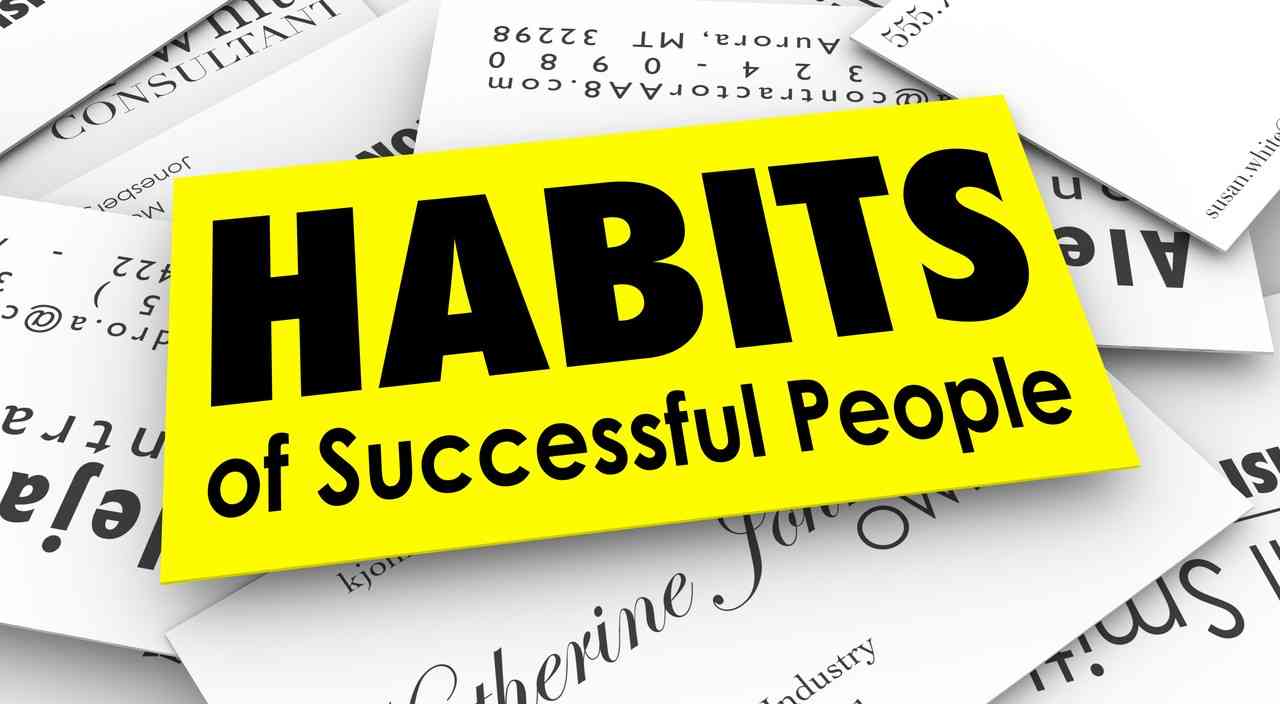
IF we don’t break some habits in our lives, they end up breaking us.
Success is about making a self-assessment and correcting where it’s necessary.
Success is about habits we do daily.
We don’t just become successful because of an event; it is a series of small daily victories that we consciously and concertedly engage in.
In the past two weeks, we focused on personal effectiveness.
Personal effectiveness won’t be realised if we continue to uphold negative traits.
It is the small things that we fail to conquer early that might conquer us in the future.
The late English writer who made lasting contributions as a poet, playwright, essayist, moralist, literary critic, sermonist, biographer, editor and lexicographer, Samuel Johnson, once said: “The chains of habit are too weak to be felt until they are too strong to be broken.”
- Helping your teen develop good study habits
- DJ Tira takes Kadoma through Gqom lessons
- DJ Tira takes Kadoma through Gqom lessons
- Legal matters: Why it is important to register estates
Keep Reading
Below are 15 habits we must work on to be successful:
Stop ‘Sweet’ habits
Most people struggle to stop “sweet” habits more than painful ones.
Just make a list of all habits that you have tried to stop and see which ones you love yourself.
It is much easier to let go of bad habits than those that bring short-lived pleasure.
At times, they are called secret sins.
You wouldn’t want to be caught, but you persist with them.
A good example is the issue of watching porn. If it was good, why don’t people watch it in public?
Being the smartest in the room
I have been to a number of gatherings, and there is always one person who stands out as the smartest in the room.
Some bosses do that, and their employees withhold their contributions.
As soon as you think you are smarter than everyone else, you stop listening to others and want to be heard all the time.
You can’t speak and listen simultaneously.
Talking too much
At times, we have to stop talking and start listening.
That is the greatest leadership skill that is not usually respected. We work with people.
Our relationships are with people; they want to be listened to.
No one would want to speak knowing that they are not being listened to.
Blaming things
There are things we can’t control in life, and they should not be our focus.
Instead, we should do everything within our ability to affect things we can change.
One of those things is the past; we can’t do anything about it.
We might have been born in a poor family, but that is not your problem.
Blaming other people or the past does not make you successful.
Put more demand on yourself. Do more with your life than expecting other people to do more for you.
Keeping your eyes on the rearview mirror
People are stuck in the past. Some are basking in their laurels and forget that there are more accolades to be received.
The late American American author, salesman and motivational speaker Zig Ziglar once said: “When the end comes, let it find you conquering new mountains and not sliding down an old one.”
Don’t sit on your past successes.
Other people are stuck in their past worst experiences.
It is good to learn from the past, but it’s definitely not ideal to stay in the past.
Toxicity
There are people who are always negative and opposing others. I have seen this in meetings.
It’s usually the same people who have the same problem.
No motion can be adopted without critiquing it.
Anything brought to the table is shot down. Being negative is a habit.
You can grow to become negative. This negativity applies to other people and to yourself.
Ungratefulness
When someone genuinely says thank you to me, there is a special, inexplicable feeling in my heart.
I hope you have felt that fizzy feeling. It’s so nice to hear a “thank you”.
Say thank you for a gesture. Learn to say thank you with a smile for the help you get from your team as a leader.
If you are married, add a dose of “thank you” to all good things.
Being grateful opens more rivers of help into your life.
The more you are thankful, the more people will want to help you willingly.
I have a daughter, and every time I buy her a chocolate or something, she says, “Thank you, daddy.” Wow! That brings that extra special feeling.
Excuses
In my success coaching, I have realised that people have a lot of excuses.
This has led them to be extremely defensive.
How do you take this statement by the late American radio speaker and author Earl Nightingale: “All of us are self-made, but it’s only the successful that will admit it.”
Drop your excuse and live by good choices.
A bad mouth
Some people thrive on the downfall of others.
I remember at school, the worst thing that would happen to me was to be shamed by other students.
It’s like something special was taken away from me.
Shaming others grows your ego and self-satisfaction, but it has a gross effect on the other person.
You choose the words you use in all situations.
Disparaging or derogatory words are defaming, demeaning, and demoralising. Learn to control your tongue.
Exaggeration of problems
You might not want to hear this, but it’s important; problems will always come your way.
Learn how to master and conquer them. When someone has a problem, they blow it out of proportion and make everyone know that they are in a problem.
It’s not about the problem, but the person you become after overcoming the problem.
It is the price of pain that we have to pay on our way to the pinnacle, so learn to see an opportunity in every problem.
Being judgmental
It’s within human instinct to be judgmental.
We are judged by looks, step, posture, but at times we wrongly judge gold because it is wrapped in dirt.
Our temperament
When I lose my temper, I usually make a lot of mistakes because I will be acting on what I feel, not what I think.
When we lose our temper, we speak loudly or we yell. Learn to control your temper.
Refusing to say “sorry”
As long as we are on this earth, we are prone to mistakes.
The best thing we can do is learn to apologise.
Some people won’t apologise because they think they are superior.
It’s really hard for political leaders to come out and say, “We are sorry” to the electorate.
Lowering the standards
Success is all about raising the standards.
These are the standards of your attitude, beliefs, and choices.
Your standards are usually your rituals. Rituals become our success.
Success is based on those small rituals we make daily.
Success lies in the value systems you uphold as an individual and the value you add to yourself in secret.
Most people don’t fail an exam; they fail in reading (as a ritual) for that examination.
Your set standards make you not to or do certain things and behave in a certain way.
Who sets these standards for us? It’s you as an individual.
Certain value systems attract a special life that leads to your results in life.
Being stingy
Life is about giving and positioning yourself to be in the flow to receive. Life is a cycle.
Human beings give carbon dioxide to plants and the plants give oxygen in return.
Just imagine a situation where the plants went on strike and withheld oxygen; we would all die.
The more you give a service to people, the more you are in the flow of life and ready to receive.
Parting Point: Stephen R Covey, the author of the book The 7 Habits of Highly Effective People, wrote: “Our character is basically a composite of our habits. Because they are consistent, often unconscious patterns, they constantly, daily, express our character.”
- Jonah Nyoni is an author, speaker and leadership trainer. He can be contacted on X @jonahnyoni. WhatsApp: +263 772 581 918










